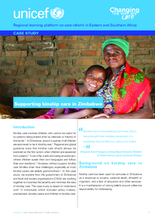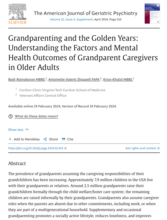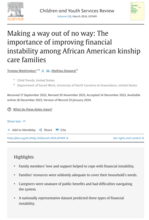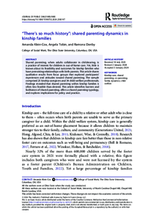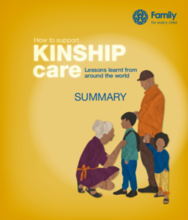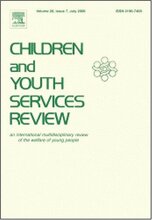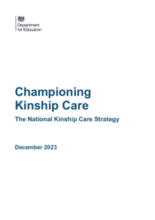Displaying 1 - 10 of 576
In this case study, the authors explore how the government of Zimbabwe and local civil society organisations (CSOs) are working together to maximise the benefits and minimise the risks of kinship care. The case study is based on interviews with 12 individuals which included policy makers, practitioners, kinship carers and children in kinship care.
This report outlines the various trends and reasons for the rise of grandparents involved in caring for grandchildren in the U.S. It also describes the different types of households involving grandparents and grandchildren, including grandfamilies, skipped-generation, and three-generation families, and summarize various theories of grandparent stress including role strain theory and social exchange theory.
The purpose of this CHIMES review and meta-analysis was to evaluate the effectiveness of interventions evaluated via randomized controlled trials (RCTs) for improving mental health and wellbeing outcomes for care experienced children and young people.
Family for Every Child launched its global inter-agency guidance on supporting kinship care aimed at policy makers and programme managers during this webinar on 1 February 2024.
This study examined African American families who are providing informal kinship care in the U.S. with the aim of developing a nuanced understanding of the financial characteristics, challenges, and coping strategies of these families.
Shared parenting, when adults collaborate in childrearing, is a practice of interest for children in out-of-home care. Yet, little is known about its feasibility and outcomes for kinship families who have preexisting relationships with birth parents. This article shares qualitative results from focus groups that explored participants’ experiences and attitudes toward shared parenting in the U.S.
This guidance is the first ever global, practitioner-informed guidance on how to support kinship care. The guidance is aimed at policymakers and programme managers working to improve the care of children.
This guidance explains why supporting kinship care is so important and provides principles of good practice and lessons learnt from across the world. This is a summary of a more detailed version of the guidance, which also includes over 40 examples of promising practice from across the world.
This longitudinal study evaluates the effectiveness of BLINDED intervention, an intervention that utilizes family search and engagement practices to place children who enter foster care in kinship placements as quickly as possible in the U.S.
This is the first-ever National Kinship Care Strategy to be published in the UK. The strategy establishes “the foundations for a future, transformed kinship care system in England.”

